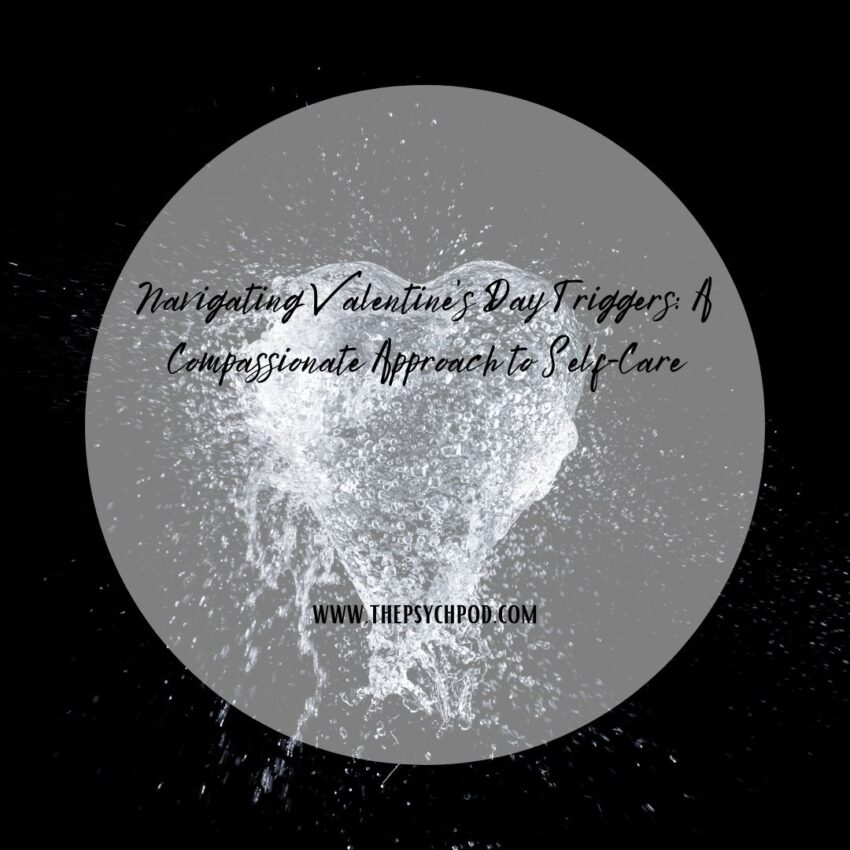Valentine’s Day, with its emphasis on romance and love, can evoke a myriad of emotions for individuals, ranging from joy and excitement to sadness and longing. For many, this day serves as a reminder of past heartaches, unfulfilled desires, or the absence of a romantic partner. These emotional triggers can be challenging to navigate, but with mindful awareness and self-care practices, it’s possible to embrace Valentine’s Day with grace and compassion.
Acknowledge Your Feelings:
It’s essential to recognize and honor the emotions that arise within you during Valentine’s Day. Whether you’re experiencing sadness, loneliness, or nostalgia, allow yourself to feel without judgment. Emotions are valid expressions of your inner world, and acknowledging them is the first step towards healing.
Set Boundaries:
If certain Valentine’s Day traditions or social media posts trigger negative feelings, it’s okay to set boundaries to protect your emotional well-being. You have the right to opt-out of celebrations or activities that don’t resonate with you, and it’s perfectly acceptable to limit your exposure to content that exacerbates your distress.
Practice Self-Compassion:
Be gentle and kind to yourself during this time. Offer yourself the same level of compassion and understanding you would extend to a dear friend in need. Remind yourself that it’s okay to feel vulnerable and that you are deserving of love and compassion, especially from yourself.
Engage in Self-Care Rituals:
Prioritize self-care practices that nourish your mind, body, and soul. Whether it’s practicing mindfulness, indulging in a favorite hobby, or spending time in nature, make self-care a priority on Valentine’s Day. Focus on activities that bring you comfort, joy, and inner peace.
Connect with Supportive Relationships:
Reach out to friends, family members, or support groups who understand and validate your feelings. Surround yourself with compassionate individuals who offer empathy, encouragement, and a listening ear. Sharing your thoughts and emotions with trusted loved ones can provide solace and reassurance during challenging times.
Reframe Your Perspective:
Challenge societal narratives surrounding Valentine’s Day and redefine its meaning to align with your personal values and beliefs. Instead of viewing it solely as a celebration of romantic love, consider it an opportunity to honor all forms of love, including self-love, platonic connections, and acts of kindness towards others.
Focus on Gratitude:
Cultivate a gratitude practice by reflecting on the blessings and positive aspects of your life. Express gratitude for the relationships, experiences, and opportunities that bring joy and fulfillment into your world. Shifting your focus towards gratitude can foster a sense of abundance and perspective amidst emotional triggers.
Remember, healing is a journey that unfolds gradually, and it’s okay to seek professional support if you find yourself struggling to cope with Valentine’s Day triggers. Be patient and compassionate with yourself, and trust that with time and self-care, you will navigate through these emotional challenges with resilience and grace. You are not alone, and your well-being matters deeply.
Dr. Velmi, Psy.D.
